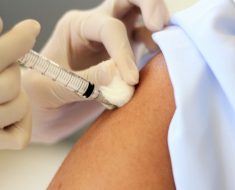
Over half of transgender or gender minority (GM) adolescents engage in substance use, seemingly as a coping strategy in response to GM stressors, according to a new study published this week in the open-access journal PLOS ONE by Sabra L. Katz-Wise of Boston Children’s Hospital and Harvard Medical School, US, and colleagues.
Compared to cisgender adolescents, adolescents who have a different gender identity than was their sex assigned at birth report higher rates of emotional distress. Previous studies have found higher prevalence of substance use among GM youth but have not examined longitudinal compounding risk factors and protective factors.
In the new study, researchers surveyed 30 GM adolescents aged 13 to 17 as part of the longitudinal Trans Teen and Family Narratives Project. Participants were asked to complete an online survey every six months for two years. GM-related stressors, including rejection, harassment and threats due to gender identity, were quantified along with substance use and possible risk and protective factors. Most participants were white (73 percent) and participants identified as trans feminine (11), trans masculine (15) and nonbinary (4).
Among all participants at the outset of the study, 17 percent reported any substance use, including tobacco, alcohol and marijuana; by the conclusion of the study two years later, 56 percent of participants reported any substance use. Higher exposure to GM stressors significantly increased the odds of alcohol use (OR=1.59, 95% CI 1.02-2.49) but not tobacco or marijuana use. Internalized transphobia was found to be a significant mediator of the association between these stressors and substance use. Increased resilience and gender-related pride tended to predict lower odds of substance use (all adjusted odds ratios below 1), and family functioning and social support both significantly moderated the association between GM stressors and alcohol use. The authors conclude that future interventions with GM youth should focus on addressing internalized transphobia and strengthening resilience, gender-related pride and family functioning.
Source: Read Full Article





